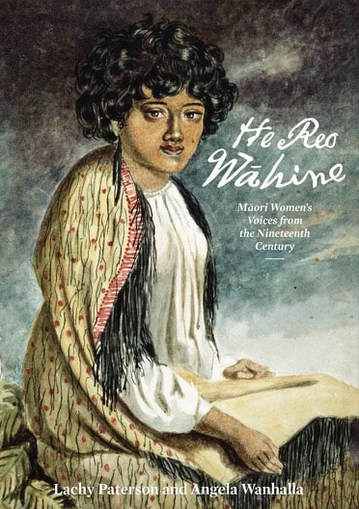
by Lachy Paterson & Angela Wanhalla
Years of dedicated research and work have gone into producing this book, and it shows – the result is a literary taonga that adds much to understanding this nation’s past.
When the arts of reading and writing were introduced to Māori society they added to the strong oral tradition already present, and were taken up with enthusiasm.
It is an unfortunate aspect of colonial tradition that the histories, views and words of women were not as valued as those of men, and were largely overlooked and ignored when archives were being compiled. This is true for women overall, and how much more so in the case of Māori women.
After extensive work, the authors have helped to redress this imbalance. By examining more than 500 texts they have put together this collection, which records examples of the thoughts and experiences of Māori women between 1830 and 1900.
As He Reo Wāhine shows, they wrote letters to all sorts of people, institutions such as government departments, and newspapers; they gave testimony in court, and made petitions – whether written or oral, in Māori or English. What is recorded in this resource is in their own words.
The Governor of the day received a good number of direct messages –
Kei mea mai koe he Tane nana tenei Pukapuka. Kahore [h]e wahine au nama [sic]…
Do not think that this letter is from a man. No, I am a woman…
Written requests and petitions, or oral testimonies made to government departments, boards and courts, gave women’s experiences and feelings on a variety of relevant subjects – such as land, war, legal matters.
…All my interests in the land of the Ngaitahu have been seized by the Government without the payment to me of even the smallest sum of money…
…One of the children, a little girl, ran out of my house, and the rifles were pointed at her, and fired at her, but she was not hit….
…I know the prisoner. I saw him on that Saturday. I never saw him before….
Similarly, Māori women wrote letters to newspapers giving their views –
We, your female friends, strongly object to the Dog Tax, that it should not be authorised in our districts and in our Māori villages.
But others were more personal, addressed to friends and family –
I want to protect my children; I brought them into the world and I must provide for them….I have sent my eldest daughter to Melbourne to be educated.
Each of the eight chapters includes explanations to put the voices into context. These, with a comprehensive introduction and an epilogue, provide good commentary on the history of the New Zealand colonial period. The 372 pages of the volume also include a glossary, notes, bibliography, and index.
In giving us this work Lachy Paterson and Angela Wanhalla, associate professors at the University of Otago, have made a major contribution to a fuller and more complete account of this country’s history.
Authors: Lachy Paterson & Angela Wanhalla
Publisher: Auckland University Press
ISBN: 978 1 86940 865 7
RRP: $65
Available: Bookshops

 RSS Feed
RSS Feed
